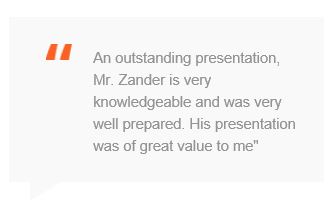
“Lord, thank you for another day not promised.”
That quiet prayer—spoken regularly by a general in our Friday morning men’s prayer group—stopped me in my tracks the first time I heard it. It wasn’t dramatic or lengthy. Just simple. Reverent. Grateful. But in ten words, it captured a truth that far too many ignore in retirement: that life is not owed to us, and every day we wake up is a divine opportunity.
The tragedy is, many people waste these opportunities the moment they retire. Not on purpose. But because they lose purpose. They trade the grind of daily work for the lure of daily rest—and slowly, something in them withers. Their calendar opens, their couch deepens, their hobbies fade, and their sense of mission quietly evaporates. Muscles not used atrophy. So does the soul.
Let’s be clear: we were not created for 30 years of leisure. There’s no historical precedent for it. No biblical model. No spiritual blueprint. It’s a relatively modern idea—a clever invention of the post-WWII American economy. But it’s also one of the most dangerous lies of our age.
The Lie of Leisure
After World War II, America found itself riding a wave of economic expansion. Pensions, Social Security, and the rise of white-collar jobs converged with a booming advertising industry to sell the public a new dream: retirement as reward. The golden years were born. Work hard, save diligently, and one day you’ll be free to do nothing.
The idea caught on. And why not? After decades of war and sacrifice, who wouldn’t want a season of peace, golf, and beachfront sunsets? But something subtle—and corrosive—came with it: the notion that rest itself was the end goal. That retirement meant the end of responsibility. The end of usefulness. The end of purpose.
It’s a vision of retirement built on sand. And sadly, many build their post-career lives upon it.
The Truth of Scripture
Contrast that with what Solomon says—not once, but seven times—in the Book of Ecclesiastes:
“There is nothing better for mortals than to eat and drink and provide themselves with good things from their toil. Even this, I saw, is from the hand of God” (Ecclesiastes 2:24, NAB).
But notice the word: toil. Labor. Effort. Solomon never praises the absence of work—he praises the enjoyment that comes from meaningful work, rightly viewed and rightly received. That’s a far cry from endless leisure.
And he also gives this sobering warning:
“I hated all the fruits of my toil that I had taken under the sun, because I must leave them to the human being who will come after me… And whether that person will be wise or a fool, I do not know” (Ecclesiastes 2:18–19, NAB).
Solomon isn’t just lamenting estate planning. He’s expressing a truth every retiree must face: what was it all for? If we separate work from worship, and provision from purpose, then we retire not just from a job—but from meaning itself.
Designed for Purpose, Not Passivity
Scripture doesn’t give us a roadmap for retirement because it never assumed we’d stop living out our calling. From Genesis to Revelation, men and women are depicted as laborers, servants, messengers, and stewards. Even after Eden, God gave Adam work to do—not as a punishment, but as part of his divine design.
The Apostle Paul worked while planting churches. Moses led God’s people through the desert at age 80. Anna the prophetess, in her 80s, prayed daily in the Temple and recognized the infant Christ. Purpose never retired.
If anything, aging in Scripture is associated with wisdom, mentorship, and stewardship—not disengagement.
The Danger of Disengagement
I recently lost my brother-in-law, David Dussault, at age 70. He was a skilled professional welder—a tradesman with decades of experience and hands toughened by work. But what made David unique wasn’t just his welding career. It was his artistry. On the side, he created beautiful welded artwork—functional, ornamental, and entirely his own.
But when he retired, that creativity stopped. The torch went cold. The garage went quiet.
He didn’t remain involved in civic or religious life. He no longer created or contributed in ways that had once defined him. And while I cannot medically prove that this absence of purpose led to his passing, I believe there is a correlation. Without work, he lost rhythm. Without rhythm, he lost meaning. And without meaning… he lost momentum.
David’s story is one I share with deep respect—and deep concern. Because it’s not rare. It’s common. And if we’re not intentional, it becomes the default script for millions of men and women each year.
Social Security Rewards the Living
Here’s something else to think about: Social Security is a pension. That’s not how I always describe it, but that’s exactly what it is—a government-managed retirement benefit designed to increase with time. The longer you live, the more you receive.
But that raises a key question: How do you live longer? And more importantly, how do you live longer with joy, strength, and clarity?
Here’s what the science now confirms—something Scripture told us long ago: purpose prolongs life. A 2019 study published in JAMA Network Open found that individuals with a strong sense of purpose had significantly lower mortality over just four years. A separate study from Harvard showed that those with high purpose had better sleep, stronger grip strength, and fewer strokes. Purpose, it turns out, isn’t just good for the soul—it’s good for the body too.
So in a very real sense, if you want to maximize your pension, you need to maximize your purpose.
The Real Retirement Question
We’ve spent generations asking people what they plan to do when they retire. But the better question might be:
“What are you being called to now that you’re free from career obligations?”
Retirement shouldn’t be about escaping responsibility. It should be about reframing it. With wisdom, margin, and maturity comes a new opportunity: to mentor, to create, to serve, to teach, to lead, to build—sometimes quietly, sometimes boldly, but always purposefully.
Retirement isn’t the end of your story. In many ways, it’s just the start of the next chapter.
So here’s the paradox: Social Security is a pension—a system designed to reward you the longer you live. But it doesn’t come with a handbook on how to do that. The real secret isn’t just in diet, medication, or exercise. It’s in meaning. Purpose is what keeps the heart beating beyond biology. It’s what gets you up in the morning and lays you down with peace at night.
The world may suggest that retirement is about finally doing nothing—but the soul knows better. And so does Scripture.
So the question becomes:
If we don’t retire from purpose, what exactly are we called into?
We’ll explore that next month.
![]()
David P. Zander
CFP Emeritus Board ™
dzander@back9pro.com
260-615-0078


